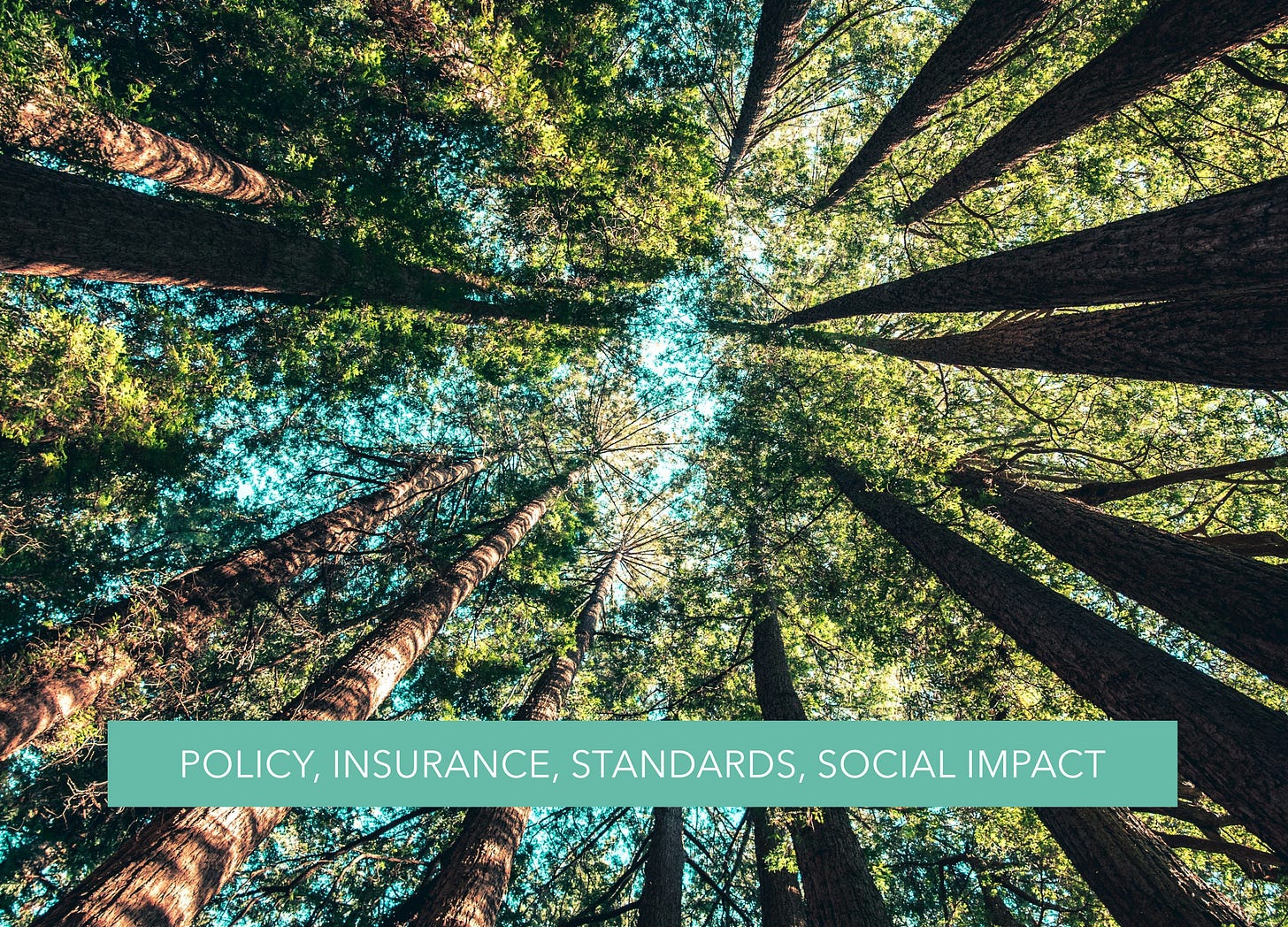RICS Sustainability Report 2025
Report by RICS (2025) | Policy, Insurance, Standards, Social Impact
Curator: Michael Zuriff
Washington DC, USA
This post is accessible to all readers.
Why we recommend it: Since launching its annual Sustainability Report in 2021, RICS has established a trusted benchmark for tracking global sentiment on sustainability and adaptability within the built environment. A comparative review of the 2024 and 2025 editions reveals that, while there has been some progress, the sector still faces many challenges. The 2024 report highlighted encouraging progress in the adoption of sustainable practices in both the public and private sectors, while also identifying key barriers, including skills shortages, high initial costs and a lack of emphasis on biodiversity. However, by 2025, the pace of progress has slowed. Demand for green buildings has softened, particularly in the Americas, with broader signs of stagnation in sustainability uptake. Investment reluctance continues to stem from cost concerns, unclear return profiles, and lower market demand.
Carbon measurement remains a critical gap, with a high number of professionals reporting not tracking emissions, which indicates a decrease from the previous year’s report. Protecting biodiversity, however, has grown with over 60% of respondents recognizing its importance to the sector’s future. The 2025 report emphasizes a clear imperative: advancing sustainable development will require targeted upskilling, robust training programs, and supportive regulatory frameworks to drive meaningful change.
Key takeaways:
- The built environment continues to play a significant role in the global climate challenge, still contributing nearly 40% of carbon emissions and raw material use worldwide. As part of its annual climate-focused research, RICS engaged over 3,500 professionals across 36 countries via its Global Commercial Property Monitor and Global Construction Monitor, delivering essential insights on market trends and sustainability uptake in the real estate sector.
Green Building Demand: The growth in demand for sustainable buildings has slowed down, particularly in the Americas, with shifting policy priorities in the United States cited as a contributing factor. With the exception of the Middle East and Africa, most regions have experienced a similar moderation in momentum.
Investment Barriers: While certified green and climate-resilient buildings are regarded as attractive investment opportunities, their uptake is currently hindered by several factors. These include persistently high upfront costs, limited data on returns, and a lack of investor awareness. These factors are proving more detrimental to investment than regulatory or incentive factors.
Carbon Measurement Gaps: The construction industry is still falling behind in terms of emissions tracking, with 46% of professionals reporting that they do not measure carbon outputs. This is an increase compared to previous years, highlighting a concerning trend in sustainable practice adoption.
Promoting awareness of biodiversity: It is encouraging to note that more than 60% of those surveyed consider biodiversity protection to be a top priority for the built environment, illustrating a growing alignment with nature-positive goals.
Skills and Capacity Building: RICS’ global survey indicates a pressing need for upskilling in sustainability, digital technologies and financial literacy. While there are isolated examples of progress, broader industry-wide skills-development remains limited.
- The NYC Playbook is continuously updated to reflect emerging insights, evolving standards, and lessons learned from field implementation. It is positioned as a living resource for industry professionals committed to advancing sustainability in the built environment.
- To advance sustainability in the sector, the report stresses that it will be crucial to strengthen regulatory frameworks and increase awareness of the financial/investor benefits of sustainable assets. In a challenging macroeconomic environment, government action and industry collaboration will be essential to realigning priorities and achieving the sector’s climate ambitions.
To access the document click 🔗 this link
If you encounter any difficulties, please contact us at info@samcurated.com and we will provide you with assistance. Please allow 24 to 48 hours for turnaround times, slightly longer during the weekends.
Disclaimer: SAM Curated, the curators and any other guests invited to share their opinions assume no responsibility or liability for any errors or omissions in the content of this site and/or email generated by this site. Please note that the information on this site is provided on an “as is” basis, with no guarantees of completeness, accuracy, usefulness or timeliness.





